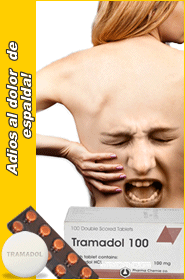No tiene artículos en su carrito de compras.
Descripción del producto
Cialis is used for:
Treating erectile dysfunction (ED). Cialis is a phosphodiesterase inhibitor. It works by helping to increase blood flow into the penis during sexual stimulation. This helps you to achieve and maintain an erection.
Do NOT use Cialis if:
you are allergic to any ingredient in Cialis
you have severe liver problems or certain hereditary degenerative eye problems (eg, retinitis pigmentosa)
you have certain heart problems (eg, unstable angina, angina during sexual intercourse, severe heart failure, uncontrolled irregular heartbeat), low blood pressure, or uncontrolled high blood pressure
you have had a heart attack within the past 90 days or a stroke within the past 6 months
you are taking nitrates (eg, isosorbide, nitroglycerin) in any form (eg, tablet, capsule, patch, ointment) or nitroprusside
you have been advised by your doctor to avoid sexual activity because of heart problems
you use certain recreational drugs called "poppers" (eg, amyl nitrate, butyl nitrate)
Contact your doctor or health care provider right away if any of these apply to you.
Before using Cialis:
Some medical conditions may interact with Cialis . Tell your doctor or pharmacist if you have any medical conditions, especially if any of the following apply to you:
if you are taking any prescription or nonprescription medicine, herbal preparation, or dietary supplement
if you have allergies to medicines, foods, or other substances
if you have a deformed penis (eg, Peyronie disease, cavernosal fibrosis), blood problems (eg, sickle cell anemia, leukemia, multiple myeloma), or any other condition that may increase the risk of a prolonged erection (priapism)
if you have a history of certain eye problems (eg, retinitis pigmentosa, sudden vision loss, optic neuropathy, macular degeneration)
if you have a history of liver or kidney problems, dialysis, high or low blood pressure, ulcers, bleeding problems, blood vessel problems, heart problems (eg, heart failure, irregular heartbeat, aortic stenosis, angina), or blood vessel problems
if you have a history of heart attack, stroke, or life-threatening irregular heartbeat
Some MEDICINES MAY INTERACT with Cialis . Tell your health care provider if you are taking any other medicines, especially any of the following:
Alpha-blockers (eg, doxazosin), medicines for high blood pressure, nitrates (eg, isosorbide, nitroglycerin), or nitroprusside because severe low blood pressure with dizziness, lightheadedness, and fainting may occur
Azole antifungals (eg, itraconazole), HIV protease inhibitors (eg, ritonavir), macrolide antibiotics (eg, erythromycin), or telithromycin because they may increase the risk of Cialis 's side effects
Rifampin because it may decrease Cialis 's effectiveness
This may not be a complete list of all interactions that may occur. Ask your health care provider if Cialis may interact with other medicines that you take. Check with your health care provider before you start, stop, or change the dose of any medicine.
How to use Cialis:
Use Cialis as directed by your doctor. Check the label on the medicine for exact dosing instructions.
An extra patient leaflet is available with Cialis . Talk to your pharmacist if you have questions about this information.
Take Cialis by mouth with or without food.
Cialis may be taken up to 36 hours before sexual activity, as directed by your doctor.
Do not take Cialis more often than once daily, or as directed by your doctor.
Check with your doctor before you eat grapefruit or drink grapefruit juice while you are taking Cialis.
If you miss a dose of Cialis and you still intend to engage in sexual activity, take it as soon as you remember. Continue to take it as directed by your doctor.
Ask your health care provider any questions you may have about how to use Cialis .
Important safety information:
Cialis may cause dizziness, drowsiness, fainting, or blurred vision. These effects may be worse if you take it with alcohol or certain medicines. Use Cialis with caution. Do not drive or perform other possibly unsafe tasks until you know how you react to it.
Cialis may cause dizziness, lightheadedness, or fainting; alcohol, hot weather, exercise, or fever may increase these effects. To prevent them, sit up or stand slowly, especially in the morning. Sit or lie down at the first sign of any of these effects.
Do not drink large amounts of alcohol (eg, 5 drinks or more) while you take Cialis . Doing so may increase your risk of dizziness, headache, fast heartbeat, and low blood pressure.
Patients with heart problems who take Cialis may be at increased risk for heart-related side effects, including heart attack or stroke. Symptoms of a heart attack may include chest, shoulder, neck, or jaw pain; numbness of an arm or leg; severe dizziness, headache, nausea, stomach pain, or vomiting; fainting; or vision changes. Symptoms of a stroke may include confusion; vision or speech changes; one-sided weakness; or fainting. Contact your doctor or seek medical attention right away if you experience these symptoms.
Cialis may rarely cause a prolonged, painful erection. This could happen even when you are not having sex. If this is not treated right away, it could lead to permanent sexual problems such as impotence. Contact your doctor right away if this happens.
Cialis may uncommonly cause mild, temporary vision changes (eg, blurred vision, sensitivity to light, blue/green color tint to vision) contact your doctor if vision changes persist or are severe.
Do not use other medicines or treatments for erectile dysfunction while you are taking Cialis.
Cialis does not stop the spread of HIV or other sexually transmitted diseases (STDs) to others through sexual contact. Use barrier methods of birth control (eg, condoms) if you have HIV infection or an STD.
Cialis will not prevent pregnancy. If your partner may become pregnant and you wish to avoid pregnancy, be sure to use an effective form of birth control.
Use Cialis with caution in the ELDERLY; they may be more sensitive to its effects.
Cialis is not recommended for use in CHILDREN; safety and effectiveness in children have not been confirmed.
PREGNANCY and BREAST-FEEDING: Cialis is not approved for use in women. If you become pregnant, contact your doctor. You will need to discuss the benefits and risks of using Cialis while you are pregnant. It is not known if Cialis is found in breast milk. If you are or will be breast-feeding while you use Cialis , check with your doctor. Discuss any possible risks to your baby.
Possible side effects of Cialis :
All medicines may cause side effects, but many people have no, or minor, side effects. Check with your doctor if any of these most COMMON side effects persist or become bothersome:
Dizziness; flushing; headache; heartburn; mild back or muscle pain; stomach upset; stuffy or runny nose.
Seek medical attention right away if any of these SEVERE side effects occur:
Severe allergic reactions (rash; hives; itching; difficulty breathing; tightness in the chest; swelling of the mouth, face, lips, or tongue); chest pain; fainting; fast or irregular heartbeat; prolonged, painful erection; red, swollen, blistered, or peeling skin; ringing in the ears; severe or persistent back or muscle pain; severe or persistent dizziness; severe or persistent vision changes; sudden decrease or loss of vision in one or both eyes; sudden hearing loss.
This is not a complete list of all side effects that may occur. If you have questions or need medical advice about side effects, contact your doctor or health care provider.
Proper storage of Cialis:
Store Cialis at 77 degrees F (25 degrees C). Brief storage at temperatures between 59 and 86 degrees F (15 and 30 degrees C) is permitted. Store away from heat, moisture, and light. Do not store in the bathroom. Keep Cialis out of the reach of children and away from pets.
Treating erectile dysfunction (ED). Cialis is a phosphodiesterase inhibitor. It works by helping to increase blood flow into the penis during sexual stimulation. This helps you to achieve and maintain an erection.
Do NOT use Cialis if:
you are allergic to any ingredient in Cialis
you have severe liver problems or certain hereditary degenerative eye problems (eg, retinitis pigmentosa)
you have certain heart problems (eg, unstable angina, angina during sexual intercourse, severe heart failure, uncontrolled irregular heartbeat), low blood pressure, or uncontrolled high blood pressure
you have had a heart attack within the past 90 days or a stroke within the past 6 months
you are taking nitrates (eg, isosorbide, nitroglycerin) in any form (eg, tablet, capsule, patch, ointment) or nitroprusside
you have been advised by your doctor to avoid sexual activity because of heart problems
you use certain recreational drugs called "poppers" (eg, amyl nitrate, butyl nitrate)
Contact your doctor or health care provider right away if any of these apply to you.
Before using Cialis:
Some medical conditions may interact with Cialis . Tell your doctor or pharmacist if you have any medical conditions, especially if any of the following apply to you:
if you are taking any prescription or nonprescription medicine, herbal preparation, or dietary supplement
if you have allergies to medicines, foods, or other substances
if you have a deformed penis (eg, Peyronie disease, cavernosal fibrosis), blood problems (eg, sickle cell anemia, leukemia, multiple myeloma), or any other condition that may increase the risk of a prolonged erection (priapism)
if you have a history of certain eye problems (eg, retinitis pigmentosa, sudden vision loss, optic neuropathy, macular degeneration)
if you have a history of liver or kidney problems, dialysis, high or low blood pressure, ulcers, bleeding problems, blood vessel problems, heart problems (eg, heart failure, irregular heartbeat, aortic stenosis, angina), or blood vessel problems
if you have a history of heart attack, stroke, or life-threatening irregular heartbeat
Some MEDICINES MAY INTERACT with Cialis . Tell your health care provider if you are taking any other medicines, especially any of the following:
Alpha-blockers (eg, doxazosin), medicines for high blood pressure, nitrates (eg, isosorbide, nitroglycerin), or nitroprusside because severe low blood pressure with dizziness, lightheadedness, and fainting may occur
Azole antifungals (eg, itraconazole), HIV protease inhibitors (eg, ritonavir), macrolide antibiotics (eg, erythromycin), or telithromycin because they may increase the risk of Cialis 's side effects
Rifampin because it may decrease Cialis 's effectiveness
This may not be a complete list of all interactions that may occur. Ask your health care provider if Cialis may interact with other medicines that you take. Check with your health care provider before you start, stop, or change the dose of any medicine.
How to use Cialis:
Use Cialis as directed by your doctor. Check the label on the medicine for exact dosing instructions.
An extra patient leaflet is available with Cialis . Talk to your pharmacist if you have questions about this information.
Take Cialis by mouth with or without food.
Cialis may be taken up to 36 hours before sexual activity, as directed by your doctor.
Do not take Cialis more often than once daily, or as directed by your doctor.
Check with your doctor before you eat grapefruit or drink grapefruit juice while you are taking Cialis.
If you miss a dose of Cialis and you still intend to engage in sexual activity, take it as soon as you remember. Continue to take it as directed by your doctor.
Ask your health care provider any questions you may have about how to use Cialis .
Important safety information:
Cialis may cause dizziness, drowsiness, fainting, or blurred vision. These effects may be worse if you take it with alcohol or certain medicines. Use Cialis with caution. Do not drive or perform other possibly unsafe tasks until you know how you react to it.
Cialis may cause dizziness, lightheadedness, or fainting; alcohol, hot weather, exercise, or fever may increase these effects. To prevent them, sit up or stand slowly, especially in the morning. Sit or lie down at the first sign of any of these effects.
Do not drink large amounts of alcohol (eg, 5 drinks or more) while you take Cialis . Doing so may increase your risk of dizziness, headache, fast heartbeat, and low blood pressure.
Patients with heart problems who take Cialis may be at increased risk for heart-related side effects, including heart attack or stroke. Symptoms of a heart attack may include chest, shoulder, neck, or jaw pain; numbness of an arm or leg; severe dizziness, headache, nausea, stomach pain, or vomiting; fainting; or vision changes. Symptoms of a stroke may include confusion; vision or speech changes; one-sided weakness; or fainting. Contact your doctor or seek medical attention right away if you experience these symptoms.
Cialis may rarely cause a prolonged, painful erection. This could happen even when you are not having sex. If this is not treated right away, it could lead to permanent sexual problems such as impotence. Contact your doctor right away if this happens.
Cialis may uncommonly cause mild, temporary vision changes (eg, blurred vision, sensitivity to light, blue/green color tint to vision) contact your doctor if vision changes persist or are severe.
Do not use other medicines or treatments for erectile dysfunction while you are taking Cialis.
Cialis does not stop the spread of HIV or other sexually transmitted diseases (STDs) to others through sexual contact. Use barrier methods of birth control (eg, condoms) if you have HIV infection or an STD.
Cialis will not prevent pregnancy. If your partner may become pregnant and you wish to avoid pregnancy, be sure to use an effective form of birth control.
Use Cialis with caution in the ELDERLY; they may be more sensitive to its effects.
Cialis is not recommended for use in CHILDREN; safety and effectiveness in children have not been confirmed.
PREGNANCY and BREAST-FEEDING: Cialis is not approved for use in women. If you become pregnant, contact your doctor. You will need to discuss the benefits and risks of using Cialis while you are pregnant. It is not known if Cialis is found in breast milk. If you are or will be breast-feeding while you use Cialis , check with your doctor. Discuss any possible risks to your baby.
Possible side effects of Cialis :
All medicines may cause side effects, but many people have no, or minor, side effects. Check with your doctor if any of these most COMMON side effects persist or become bothersome:
Dizziness; flushing; headache; heartburn; mild back or muscle pain; stomach upset; stuffy or runny nose.
Seek medical attention right away if any of these SEVERE side effects occur:
Severe allergic reactions (rash; hives; itching; difficulty breathing; tightness in the chest; swelling of the mouth, face, lips, or tongue); chest pain; fainting; fast or irregular heartbeat; prolonged, painful erection; red, swollen, blistered, or peeling skin; ringing in the ears; severe or persistent back or muscle pain; severe or persistent dizziness; severe or persistent vision changes; sudden decrease or loss of vision in one or both eyes; sudden hearing loss.
This is not a complete list of all side effects that may occur. If you have questions or need medical advice about side effects, contact your doctor or health care provider.
Proper storage of Cialis:
Store Cialis at 77 degrees F (25 degrees C). Brief storage at temperatures between 59 and 86 degrees F (15 and 30 degrees C) is permitted. Store away from heat, moisture, and light. Do not store in the bathroom. Keep Cialis out of the reach of children and away from pets.


















